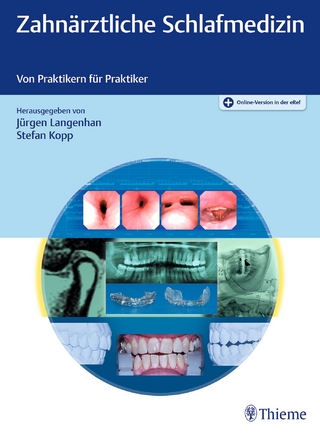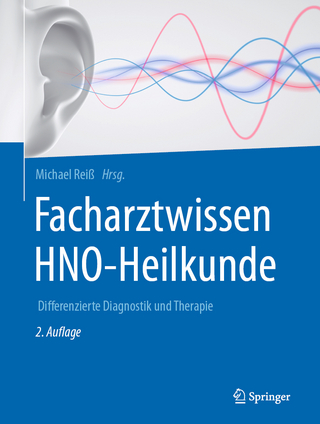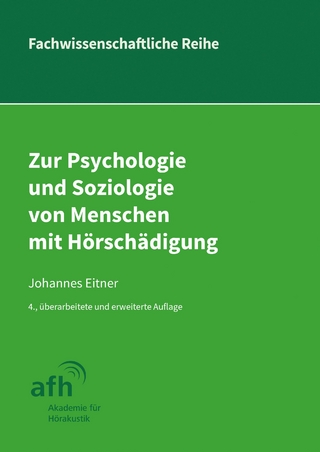
Deaf Hearing Boy
A Memoir
2004
Gallaudet University Press,U.S. (Verlag)
978-1-56368-307-7 (ISBN)
Gallaudet University Press,U.S. (Verlag)
978-1-56368-307-7 (ISBN)
- Titel ist leider vergriffen;
keine Neuauflage - Artikel merken
Pulitzer Prize-winning author Louis Menand begins this wide-ranging volume with an essay that extols diversity and warns of the dangers of modifying the human genome. Nora Groce reviews the ways that societies have defined disability and creates an interpretive framework for discussing the relationship between culture and disability.
In essays devoted to historical perspective, Brian H. Greenwald comments upon the real "toll" taken by A. G. Bell's insistence upon oralism, while Joseph J. Murray weighs the nineteenth-century debate over whether deaf-deaf marriages should be encouraged. John S. Schuchman's chilling account of deafness and eugenics in the Nazi era adds wrenching reinforcement to the impetus to include disabled people in genetics debates.
Mark Willis offers an intensely personal reflection on the complexities of genetic alteration, addressing both his heart condition and his blindness in surprisingly different ways. Anna Middleton extends Willis's concepts in her discussion of couples currently considering the use of genetic knowledge and technology to select for or against a gene that causes deafness.
In the part on the science of genetics, Orit Dagan, Karen B. Avraham, Kathleen S. Arnos, and Arti Pandya clarify the choices presented by genetic engineering, and geneticist Walter E. Nance emphasizes the importance of science in offering individuals knowledge from which they can fashion their own decisions. In the concluding section, Christopher Krentz raises moral questions about the ever-continuing search for human perfection, and Michael Berube argues that disability should be considered democratically to ensure full participation of disabled people in all decisions that might affect them.
In essays devoted to historical perspective, Brian H. Greenwald comments upon the real "toll" taken by A. G. Bell's insistence upon oralism, while Joseph J. Murray weighs the nineteenth-century debate over whether deaf-deaf marriages should be encouraged. John S. Schuchman's chilling account of deafness and eugenics in the Nazi era adds wrenching reinforcement to the impetus to include disabled people in genetics debates.
Mark Willis offers an intensely personal reflection on the complexities of genetic alteration, addressing both his heart condition and his blindness in surprisingly different ways. Anna Middleton extends Willis's concepts in her discussion of couples currently considering the use of genetic knowledge and technology to select for or against a gene that causes deafness.
In the part on the science of genetics, Orit Dagan, Karen B. Avraham, Kathleen S. Arnos, and Arti Pandya clarify the choices presented by genetic engineering, and geneticist Walter E. Nance emphasizes the importance of science in offering individuals knowledge from which they can fashion their own decisions. In the concluding section, Christopher Krentz raises moral questions about the ever-continuing search for human perfection, and Michael Berube argues that disability should be considered democratically to ensure full participation of disabled people in all decisions that might affect them.
John Vickrey Van Cleve is Professor Emeritus of History, Gallaudet University, Washington, DC.
| Erscheint lt. Verlag | 1.11.2004 |
|---|---|
| Zusatzinfo | Illustrations, ports. |
| Verlagsort | Washington, DC |
| Sprache | englisch |
| Themenwelt | Medizin / Pharmazie ► Medizinische Fachgebiete ► HNO-Heilkunde |
| ISBN-10 | 1-56368-307-5 / 1563683075 |
| ISBN-13 | 978-1-56368-307-7 / 9781563683077 |
| Zustand | Neuware |
| Haben Sie eine Frage zum Produkt? |
Mehr entdecken
aus dem Bereich
aus dem Bereich
ein Kompendium von Praktikern für Praktiker
Buch (2023)
Thieme (Verlag)
330,00 €
Differenzierte Diagnostik und Therapie
Buch | Hardcover (2021)
Springer (Verlag)
179,99 €
Buch | Softcover (2022)
Median-Verlag von Killisch-Horn GmbH
53,00 €


